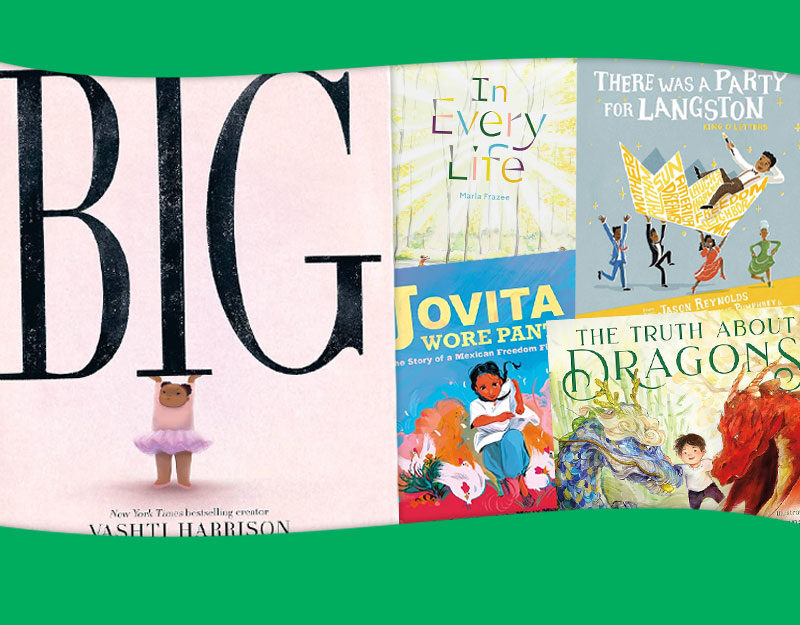Guest Post: Doing Impossible Things: Ideas for Supporting Children in Foster Care by Lindsay Lackey

Today I’m bowing out and letting an author with some chops take the reins. Ms. Lindsay Lackey, to be precise. As you may be aware, she has a book out this year called All the Impossible Things. If it sounds familiar, it might be because of the recent SLJ starred review which said, “Lackey tackles difficult topics including addiction and loss with infinite gentleness.” Or maybe you saw the Kirkus review that said it was, “Painful to read – in a good way.” Why painful? Because Lackey is tackling the subject of the foster care system. There are 443,000 children in foster care in the U.S. but not a lot of middle grade novels on the subject. To write this book, Lackey was inspired by her aunt and uncle. Today she talks a bit about them, and about the simple, small acts that you can do to uplift a child in foster care.
Take it away, Lindsay!

In 2009, my aunt and uncle were empty-nesters. They both had grown children from previous marriages, and they even had grandchildren. My aunt was a cancer survivor, and they were both nearing their retirements. It was the perfect time in life to sit back and relax.
ADVERTISEMENT
ADVERTISEMENT
Instead, they became foster parents.
One day, while at a visitation event with one of their foster children, my aunt saw a little girl across the room and had a sudden, unshakeable premonition that that little girl would one day be her daughter.
Sure enough, they eventually fostered and then adopted that little girl, and the seed for my debut novel, All the Impossible Things, was planted. I loved the idea of a middle-aged couple deciding to return to parenting by fostering, and the more I learned about the foster care system, the more I wanted to write this story.
The most recent survey[1] from the Adoption and Foster Care Analysis and Reporting System—through which the U.S. government tracks statistics and trends within the foster care system every eleven years—reported that there were 442,995 children in foster care in 2017. Often, we hear the heartbreaking stories of kids in the system who are neglected and abused. Television shows and movies tend to depict foster parents who are only in it for the money and have no interest in the welfare of the children who come into their homes.
I certainly read heartbreaking stories in my research. Of course children in foster care have suffered trauma. They wouldn’t be in foster care otherwise. And yes, there are foster parents who abuse the system for their own benefit, and who make the already difficult lives of the children in their care considerably worse.
But as I wrote All the Impossible Things, I was overwhelmed by the number of hopeful stories I found as well. There are so many people working to protect vulnerable children—often personally sacrificing an incredible amount in order to do so. These people are dedicated to uplifting children in foster care in any way they can. In All the Impossible Things, I wanted to recreate the hopefulness I found in my aunt and uncle’s story, and in so many of the stories I encountered during my research. These were stories of love overcoming impossible odds, and I wanted to celebrate them.
I believe that love is a verb. This is something my main character, Red, learns in the book as well. Love takes action. Love is work, and love is sacrifice. Foster families and those working to support kids in the foster system know that love is sometimes hard, but also that love does impossible things.
Love for foster children doesn’t have to be limited to those working directly within the system, of course. One of the most encouraging things I discovered during my research was just how many opportunities there are to support these children. From very simple, small acts that can uplift a child—such as donating a backpack so kids don’t have to move their personal belongings in garbage bags—to bigger commitments like becoming a respite caregiver, there are many ways you can get involved. Here are a few ideas to help you get involved.
- Send a care package. Every college kid enjoys getting a card in the mail, or cookies from home, or a small gift from a friend. Sadly, many foster youth don’t receive these simple reminders that someone is thinking of them. Foster Care to Success[2] gathers donations so that foster youth in college can receive three care packages every school year. Consider donating items, knitting or crocheting a scarf, or “purchasing” a care package for a student.
- Provide a comfort case. Because every child should know they matter, Comfort Cases[3] has a mission to provide children entering the foster care system with a suitcase or backpack, as well as items to help ease the transition and provide a sense of belonging and comfort. From toiletries to teddy bears, each case is customized by age. You can donate items for a specific age group, or donate the amount for a whole bag.
- Donate a prom gown. Prom is one of the most anticipated events in high school, but many foster children can’t afford to buy a gown. Becca’s Closet[4] gathers dresses for girls who can’t otherwise afford them. You can search for a donation center near you, or even start a chapter in your area.
- Pledge your birthday. FosterClub[5] offers a number of innovative ideas for supporting kids in foster care, and pledging your birthday is one of them! After you register, FosterClub will send you information around your birthday to help you set up a fundraiser, encouraging your friends and family to donate toward children in foster care in lieu of sending you gifts.
- Become a respite caregiver, a Court Appointed Special Advocate, or a foster parent. Becoming a respite caregiver means you aren’t taking on foster children full time, but you are providing a home on an as-needed or emergency basis. Court Appointed Special Advocates (CASAs) are appointed by a judge to advocate for a child’s best interest in court. This volunteer position is vitally important! And of course, becoming a foster parent is one of the best ways to support kids in the system. If you can provide a safe home, you can change a child’s life. Visit the Foster Coalition[6] to learn more about all three of these options.
[1] https://www.childwelfare.gov/pubPDFs/foster.pdf
[2] https://www.fc2success.org/programs/student-care-packages/
[3] https://www.comfortcases.org/whats-in-a-comfort-case
[4] https://www.beccascloset.org/#
[5] https://www.fosterclub.com/get-involved/how-can-i-help
[6] http://www.fostercoalition.com/help-foster-children
[1] https://www.childwelfare.gov/pubPDFs/foster.pdf
[1] https://www.fc2success.org/programs/student-care-packages/
[1] https://www.comfortcases.org/whats-in-a-comfort-case
[1] https://www.beccascloset.org/#
[1] https://www.fosterclub.com/get-involved/how-can-i-help
[1] http://www.fostercoalition.com/help-foster-children
Filed under: Guest Posts
About Betsy Bird
Betsy Bird is currently the Collection Development Manager of the Evanston Public Library system and a former Materials Specialist for New York Public Library. She has served on Newbery, written for Horn Book, and has done other lovely little things that she'd love to tell you about but that she's sure you'd find more interesting to hear of in person. Her opinions are her own and do not reflect those of EPL, SLJ, or any of the other acronyms you might be able to name. Follow her on Twitter: @fuseeight.
ADVERTISEMENT
ADVERTISEMENT
SLJ Blog Network
2024 Books from Coretta Scott King Winners
Family Style: Memories of an American from Vietnam | Review
Parsing Religion in Public Schools
ADVERTISEMENT







